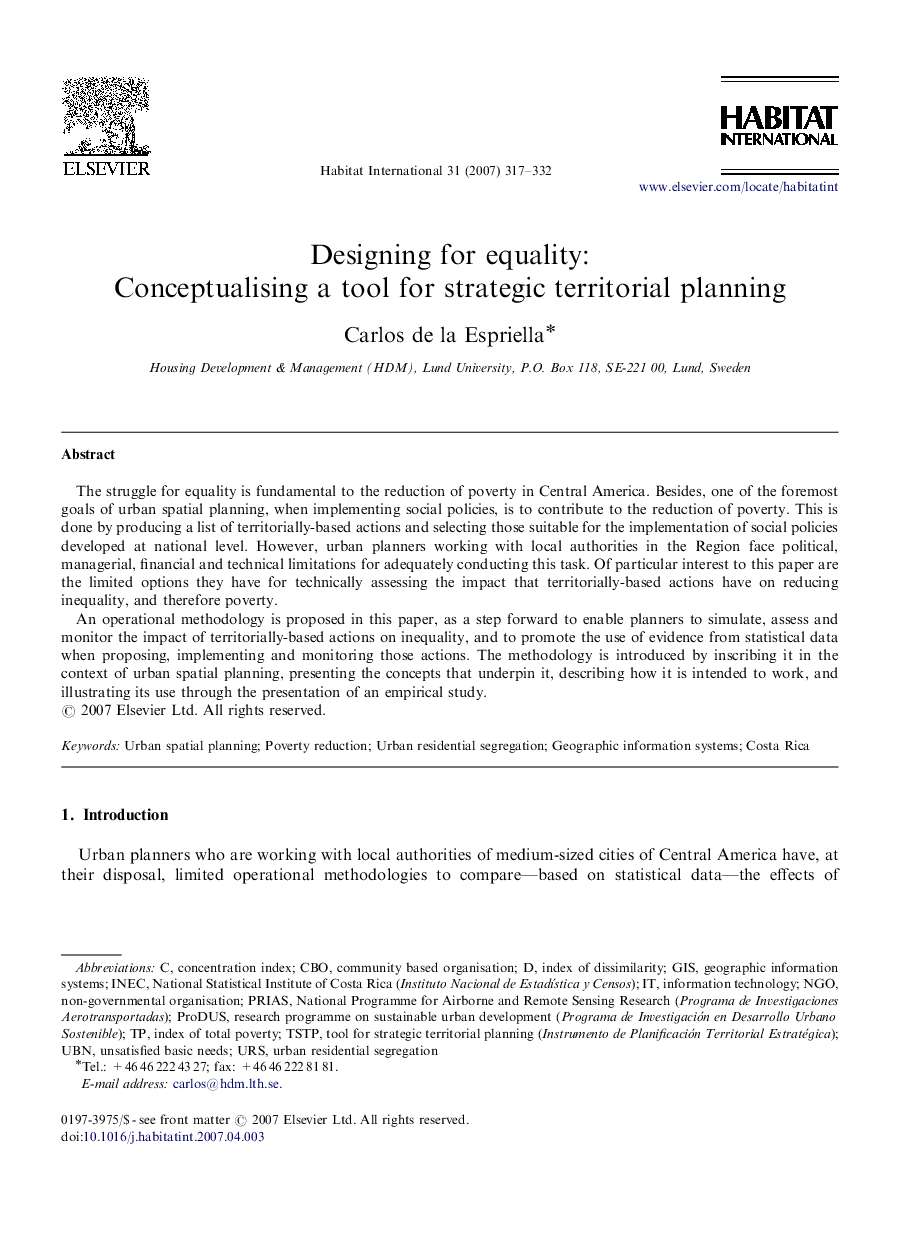| Article ID | Journal | Published Year | Pages | File Type |
|---|---|---|---|---|
| 1048448 | Habitat International | 2007 | 16 Pages |
The struggle for equality is fundamental to the reduction of poverty in Central America. Besides, one of the foremost goals of urban spatial planning, when implementing social policies, is to contribute to the reduction of poverty. This is done by producing a list of territorially-based actions and selecting those suitable for the implementation of social policies developed at national level. However, urban planners working with local authorities in the Region face political, managerial, financial and technical limitations for adequately conducting this task. Of particular interest to this paper are the limited options they have for technically assessing the impact that territorially-based actions have on reducing inequality, and therefore poverty.An operational methodology is proposed in this paper, as a step forward to enable planners to simulate, assess and monitor the impact of territorially-based actions on inequality, and to promote the use of evidence from statistical data when proposing, implementing and monitoring those actions. The methodology is introduced by inscribing it in the context of urban spatial planning, presenting the concepts that underpin it, describing how it is intended to work, and illustrating its use through the presentation of an empirical study.
